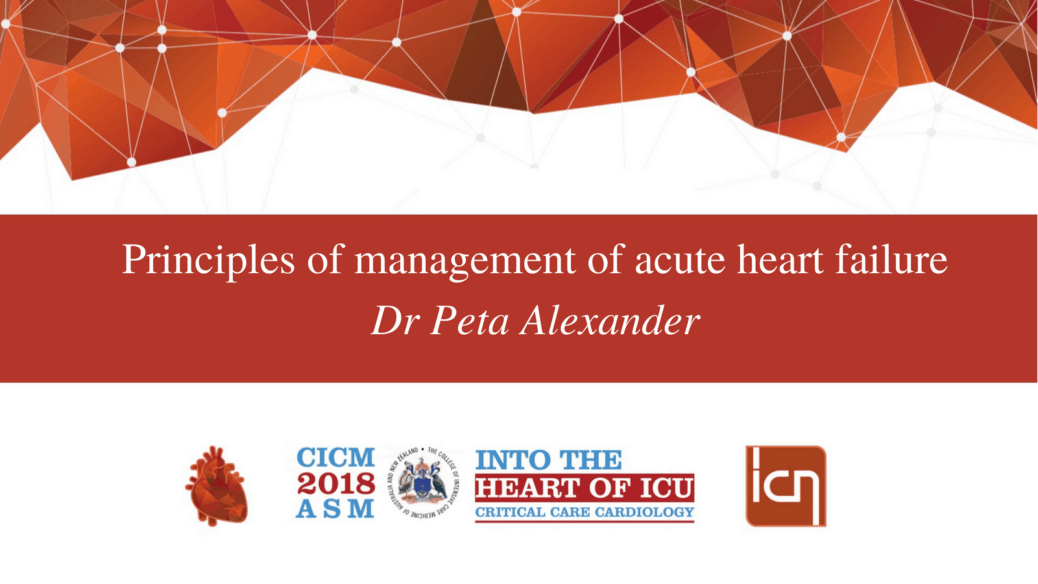Acute heart failure (AHF) is defined as rapid onset of new or worsening signs and symptoms of heart failure. It represents a life-threatening condition requiring treatment for fluid overload and hemodynamic compromise. Presentation may be initial diagnosis with symptoms and signs of AHF or acute decompensation of pre-existing cardiomyopathy. Hemodynamic instability results from disorders of the myocardium, valves, conduction system or pericardium, in isolation or combination. Potentially treatable causes, e.g. acute coronary syndromes, must be diagnosed and managed early for restoration of function.
Physiological changes associated with AHF result in reduced cardiac output and end-organ hypoperfusion. Once potentially treatable causes are managed, stratification of patients by clinical presentation guides further therapeutic intervention. AHF patients can be categorized as either ‘wet’ or ‘dry’ by clinical fluid status assessment, and either ‘cold’ or ‘warm’ according to perfusion status. In combination, these features identify four patient groups (‘warm-wet’, ‘warm-dry’, ‘cold-dry’, ‘cold-wet’) that guide therapy and facilitate prognostication. ‘Warm-dry’ patients rarely require intensive care for AHF treatment but may benefit from escalation of oral therapeutic regimen. Patients who examine as ‘cold-dry’ may benefit from fluid challenge, and/or inotropic agent infusion. ‘Warm-wet’ patients present with predominantly congestive or hypertensive symptoms which benefit from diuresis and vasodilatation. Patients who present ‘wet-cold’ with normal blood pressure (SBP >90) may benefit from vasodilators and diuretics, with inotropic agents for refractory symptoms. Hypotensive ‘wet-cold’ patients (classic cardiogenic shock) require inotropy with or without vasopressor agents, effective diuresis and early consideration of mechanical circulatory support (MCS).
Definitive therapies for AHF depend on underlying cause, and may include coronary artery intervention, valve repair, rhythm control to restore atrio-ventricular synchrony or management of pericardial tamponade. Patients with severe AHF not responsive to standard therapies should be considered for temporary MCS while candidacy for more durable option is explored by the multi-disciplinary team.

























